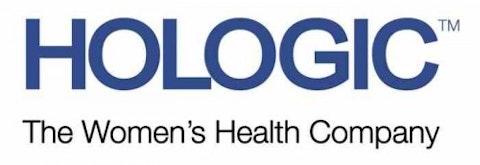This week Hologic (NASDAQ: HOLX) announced it would acquire Gen-Probe (NASDAQ: GPRO) for $3.7 billion or $82.75/share, a 20% premium based on last Friday’s close, representing ~6.0x CY 2012 revenue and ~23.0x CY 2012 EBITDA, pre-synergies. The transaction financing will be all-cash and is expected to close later this year. The companies are projecting $75 million in synergies over three years, making the deal theoretically accretive if you exclude amortization expenses associated with the M&A transaction.

On the surface, this acquisition makes sense given HOLX’s focus on women’s’ health. Our concerns surround HOLX’s history of non-accretive, value destroying M&A activity—refer to its 2007 acquisition of Cytyc Corporation for $6.2 billion and its 2008 acquisition of Third Wave Technologies for $580 million, the latter of which may warrant further write-downs—and the timing of this transaction. Both HOLX and GPRO are in the middle of launching some major products i.e., HPV/Trich/PCA3, tomosynthesis. In short, the deal feels rushed. Tomosynthesis, HOLX’s 3D mammography system, is technological superior to the current 2D systems in the market. The expectation is that adoption will be rapid throughout the year, but the sales efforts have yet to be proven. We would have preferred to see new clinical data and meaningful improvements in reimbursement for HOLX’s products before the company committed to such a large transaction.
HOLX’s own performance has been below market expectations. Last quarter’s revenue numbers were below street estimates though adjusted EPS was in-line. We would have expected higher numbers with the ongoing rollout of tomosynthesis, but the termination of HOLX’s permanent contraception product, Adiana1, certainly weighed on the topline. Adiana had been competing unsuccessfully with Conceptus (NASDAQ: CPTS). CPTS dominates the women’s contraception market with its main product ESSURE, a proprietary permanent birth control system. ESSURE is also non-invasive but relies on an insert that is placed in the fallopian tubes, causing a benign tissue in-growth that closes them. HOLX’s poor standalone performance does not boost our confidence in the company. An acquisition of a faster growing company should help, but HOLX seems to be relying on this acquisition as its main source of growth outside of tomosynthesis.
The main source of synergies we identify is in the HPV space where some overlap exists between the two companies. GPRO recently launched its HPV testing product and should help HOLX chip away at Qiagen’s (NASDAQ: QGEN) market share. The strategy for HPV will likely be to focus on GPRO’s Aptima HPV for high volume clients and to focus on HOLX’s Cervista for low volume clients. HOLX will be able to leverage its physician office-based sales force numbered at 90 to facilitate Aptima adoption. In the past, HOLX has struggled in establishing a foothold in HPV testing, with approximately 10% market share versus QGEN 80%. QGEN is a leader in sample prep and assay development and is making headway in the attractive personalized medicine testing market. It expects to receive FDA approval for its KRAS mutation tests this year, which will serve as a catalyst for the stock.
GPRO is doing very well. In conjunction with the acquisition announcement, the company released Q1 results ahead of schedule. The company beat consensus estimates for revenue and net income. Clinical diagnostic revenue grew slower than expected at 8% y-o-y, but this was offset by strong blood screening sales that were up 13% y-o-y. GPRO currently has a partnership with Novartis (NYSE: NVS) in the $200+ million blood screening business. Will NVS enter its own bid for GPRO? We think that that is certainly a possibility since NVS may try to protect its stake in the blood screening business. Other companies may also be interested in resubmitting a bid given GPRO’s compelling new products and attractive growth profile. Note that this is not the first time that GPRO has been in-play. One year ago, reports indicated that a number of life science tools companies were interested though no official offer was accepted by GPRO.
We are not surprised that HOLX shares down about ~10% for the day, on the news of lackluster earnings, worst-than-expected sales in breast health, and the announcement of the GPRO transaction. We admit that there are potential synergies i.e., sales synergies, EPS accretion within 1st year post-close. However, we still think there will be continued downward pressure on shares as investors evaluate the deal’s pros and cons. Among other issues, investors will likely be weighing the hefty price tag ~6.0x forward sales is not cheap, the all-cash nature of the deal, HOLX’s history of expensive deals, and the source of organic growth for the combined company moving forward. Paul Sinclair, Irving Kahn, Michael Katz, and Zeke Ashton are all current shareholders but knowing what we do about the deal, we do not think this deal bodes well from a shareholder value perspective.